
The Clovers are an American rhythm and blues/doo-wop vocal group who became one of the biggest selling acts of the 1950s. They had a top 30 US hit in 1959 with the Leiber and Stoller song "Love Potion No. 9".

The Silver Tongued Devil and I is the second studio album recorded by singer-songwriter Kris Kristofferson. It was produced by Fred Foster, released in July 1971 on Monument Records and followed his critically acclaimed debut Kristofferson.
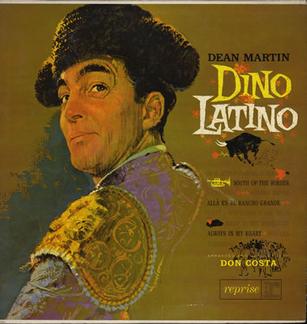
Dino Latino is an album by Dean Martin. Recorded during August 1962, the album is a collection of Latin standards and popular songs composed in the same vein.

The Dean Martin TV Show is a 1966 studio album by Dean Martin accompanied by the Les Brown orchestra, with arrangements by Ernie Freeman.

"Here We Go Again" is a country music standard written by Don Lanier and Red Steagall that first became notable as a rhythm and blues single by Ray Charles from his 1967 album Ray Charles Invites You to Listen. It was produced by Joe Adams for ABC Records/Tangerine Records. To date, this version of the song has been the biggest commercial success, spending twelve consecutive weeks on the US Billboard Hot 100 chart, peaking at number 15.

The Owl and the Pussycat is the soundtrack album to the 1970 American film of the same name. Released by Columbia Records, it features film dialogue by Barbra Streisand and George Segal recorded over music performed by American band Blood, Sweat & Tears. The album's five tracks were all written by Buck Henry, produced by Thomas Z. Shepard.

Happiness Is Dean Martin is a 1967 studio album by Dean Martin arranged by Ernie Freeman and Bill Justis.

The Dean Martin Christmas Album is a 1966 studio album by Dean Martin arranged by Ernie Freeman and Bill Justis.

Dean Martin Sings Songs from "The Silencers" is a 1966 studio album by Dean Martin of songs that featured in his film The Silencers, the first of the four films featuring the Matt Helm character that Martin would appear in. The album was arranged by Ernie Freeman and Gene Page.

Somewhere There's a Someone is a 1966 studio album by Dean Martin, produced by Jimmy Bowen.

Welcome to My World is a 1967 studio album by Dean Martin. The album was released after the unexpected success of the singles "In the Chapel in the Moonlight" and "Little Ole Wine Drinker Me". "In the Chapel in the Moonlight" had previously been released on Dean Martin Hits Again, and the title track, "Welcome to My World", had appeared previously on the 1965 album (Remember Me) I'm the One Who Loves You.

Dean Martin Hits Again is a 1965 studio album by Dean Martin, produced by Jimmy Bowen and arranged by Ernie Freeman. The album was a Top 20 hit, and Martin's fourth gold album.

My Woman, My Woman, My Wife is a 1970 studio album by Dean Martin, arranged by John Bahler, Glen D. Hardin and Billy Strange.
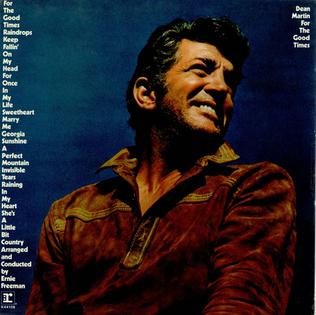
For the Good Times is a 1971 studio album by Dean Martin arranged by Ernie Freeman and produced by Jimmy Bowen.
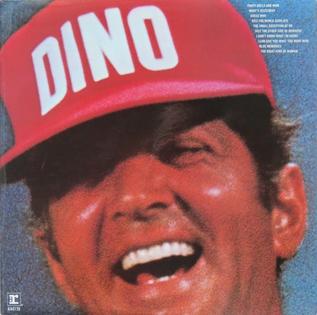
Dino is a 1972 studio album by Dean Martin arranged by Larry Muhoberac and produced by Jimmy Bowen.

Sittin' on Top of the World is a 1973 studio album by Dean Martin arranged by Van Alexander and produced by Jimmy Bowen. This was Martin's first album to be released for 16 months, and was only his second album not recorded in the country pop style since 1965.
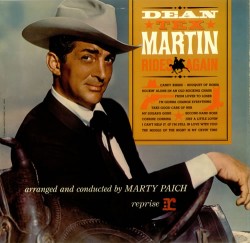
Dean "Tex" Martin Rides Again is a 1963 studio album by Dean Martin, arranged and conducted by Marty Paich.

Dean "Tex" Martin: Country Style is a 1963 studio album by Dean Martin, arranged and conducted by Don Costa.
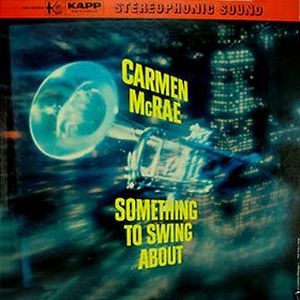
Something to Swing About is a 1960 album by jazz singer Carmen McRae, arranged by Ernie Wilkins.
Shadow was a music group in the funk-soul genre that was a spin-off from the Ohio Players. They released three albums on the Elektra label. They were Love Lite in 1979, Shadow in 1980, and Shadows in the Street in 1981. They also released a number of singles over the period from 1979 to 1981. There seems to be a degree of mystery as to who the actual members of the group were.



















